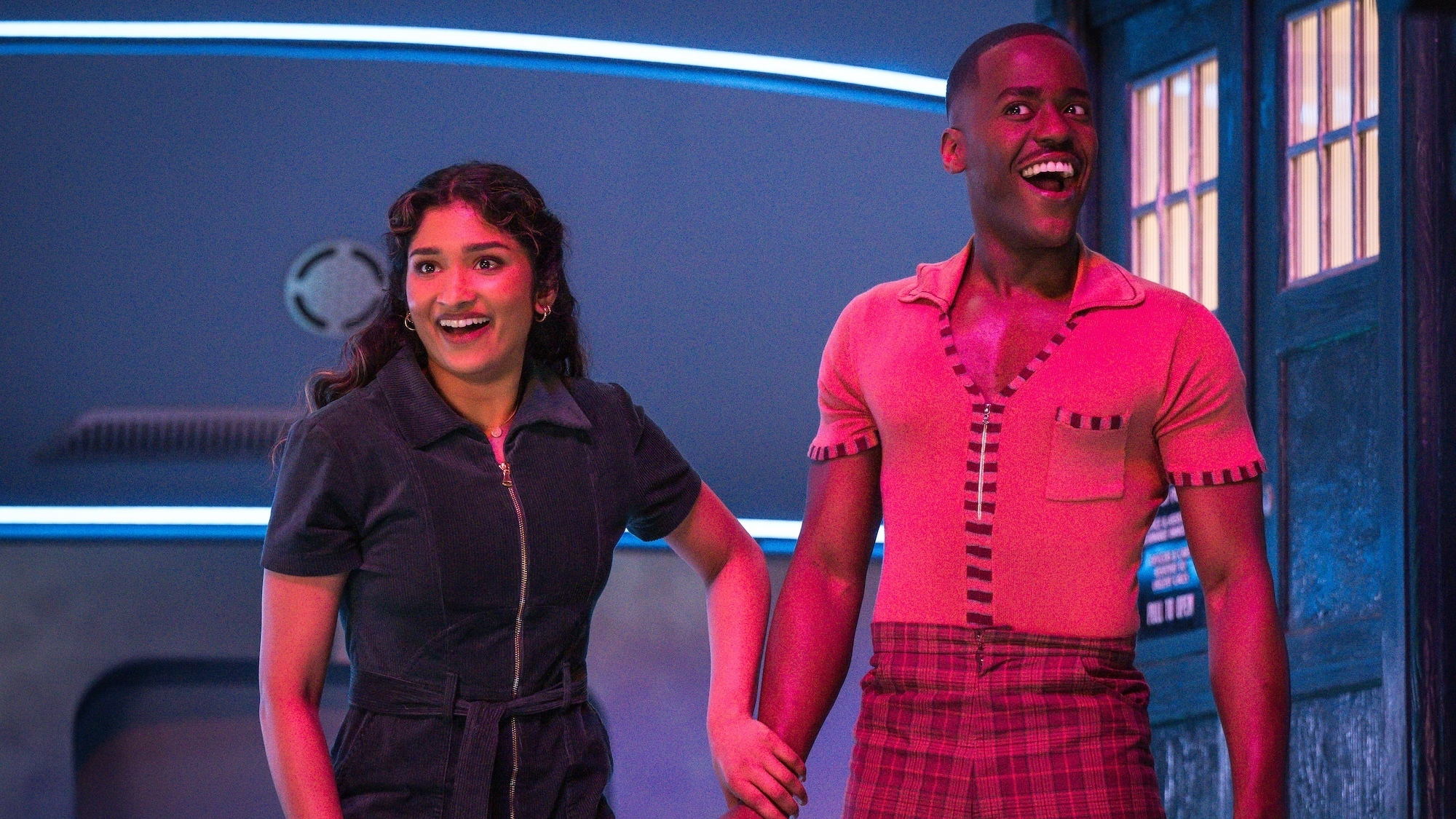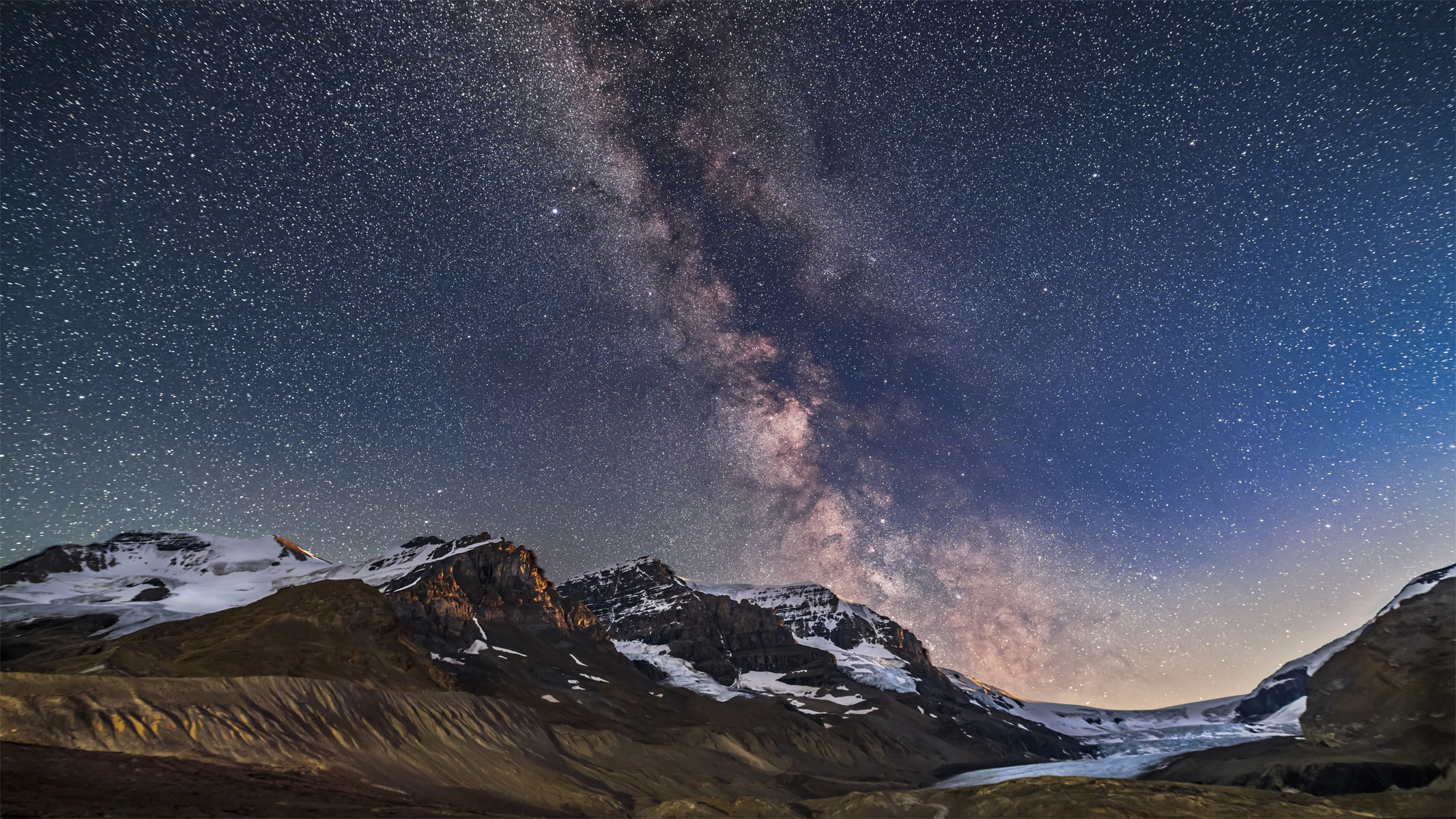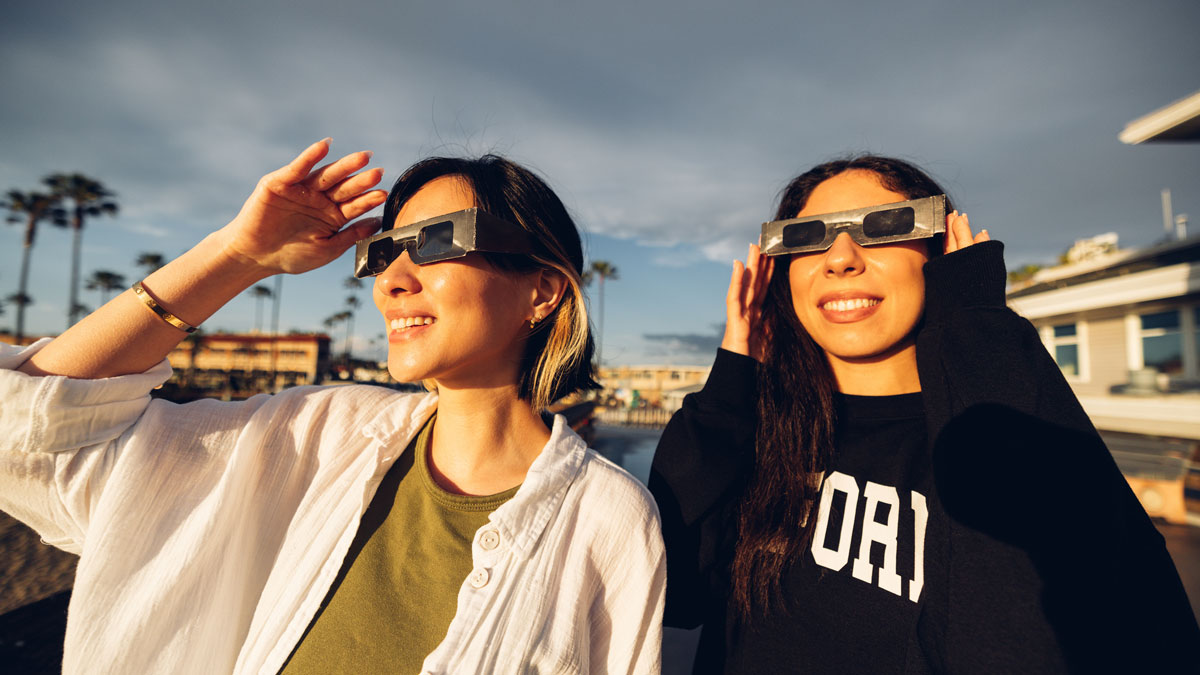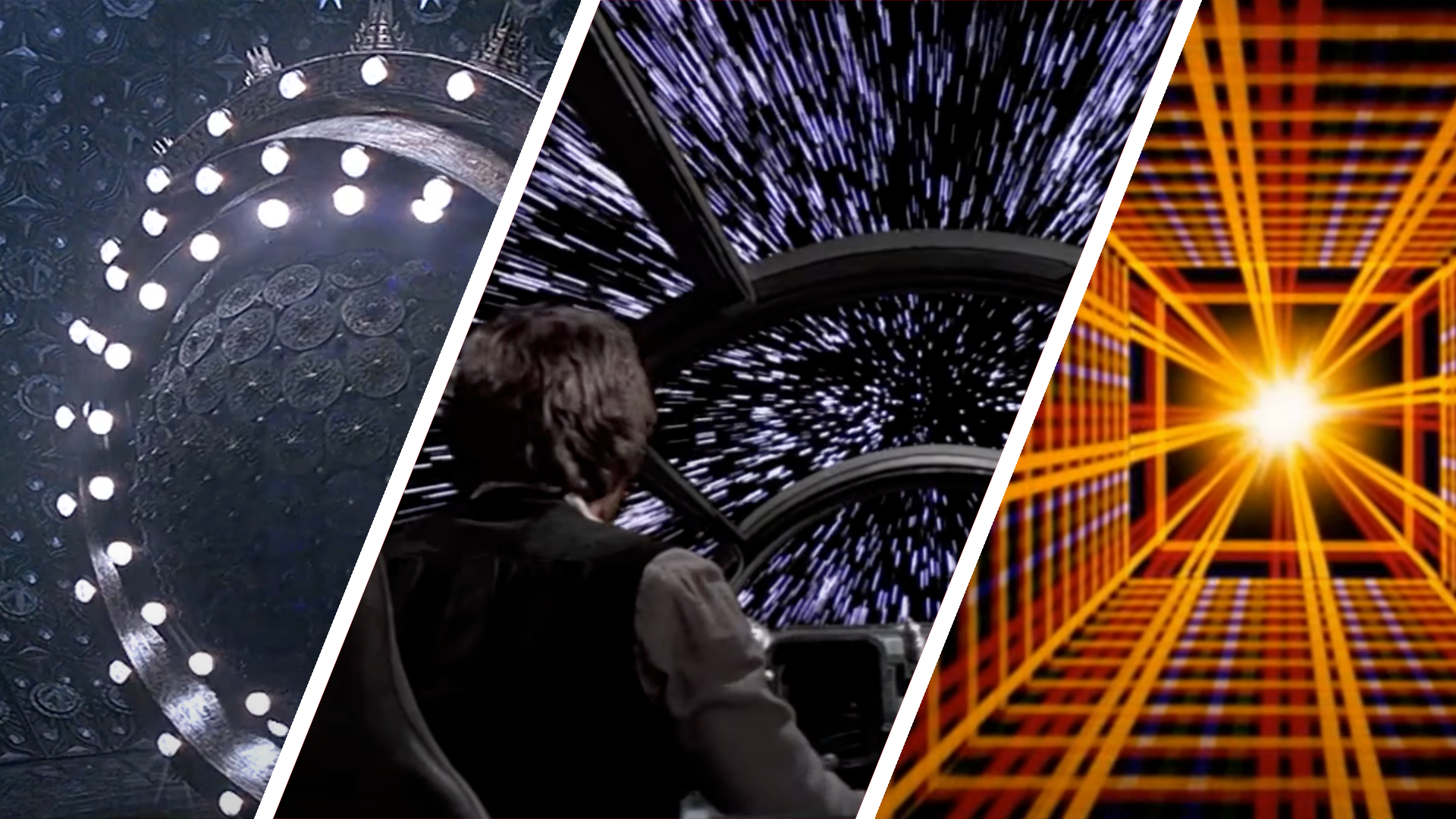Blue Origin's NS-21 space tourism launch: When to watch and what to know
NS-21 is scheduled to launch on Saturday (June 4) at 9:00 a.m. EDT (1300 GMT).

Blue Origin will fly six people into suborbital space this week on the company's fifth crewed mission.
The flight, known as NS-21, is the 21st flight of the New Shepard vehicle overall (hence the name). Liftoff is set for Saturday (June 4) at 9:00 a.m. EDT (1300 GMT) from the company's Launch Site One near Van Horn, Texas, weather permitting.
Blue Origin will webcast the liftoff live, likely beginning about one hour before launch. You can watch it here at Space.com, courtesy of Blue Origin, or directly via the company.
Passengers on board include NS-19 spaceflyer and investor Evan Dick, Katya Echazarreta (whose seat is sponsored by the nonprofit Space for Humanity), business jet brokerage founder Hamish Harding, Victor Correa Hespanha (whose seat was sponsored by a cryptocurrency organization), commercial real estate entrepreneur Jaison Robinson and private equity investor Victor Vescovo.
Here's everything you need to know about the flight.
In photos: Blue Origin's 1st New Shepard passenger launch with Jeff Bezos
What time is Blue Origin's launch, and can I watch?
The launch of New Shepard's fifth crewed flight will be broadcast Saturday (June 4), with coverage likely starting at approximately 8:00 a.m. EDT (1230 GMT) at BlueOrigin.com and here at Space.com, if possible. Liftoff is expected at 9:00 a.m. EDT (1300 GMT), but that could change depending on weather and technical issues.
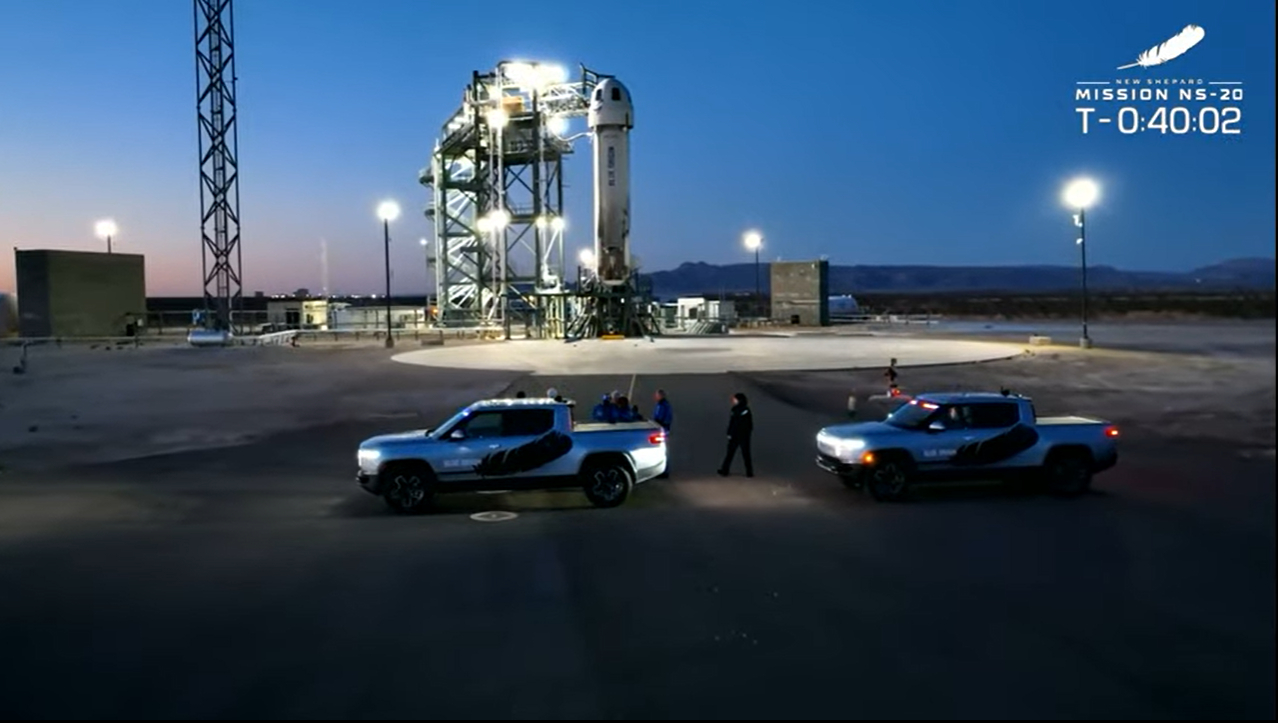
New Shepard consists of a reusable rocket and capsule, and its flights tend to last about 11 minutes from liftoff to touchdown. Past webcasts have included the launches and landings, ground views of the capsule going into space, and at times, footage of the passengers greeting people on the ground after landing.
The rocket is designed to land vertically, shortly after liftoff. The crew capsule descends separately under parachutes and touches down on Earth a few minutes after the booster does.
Blue Origin plans to stream these events live, and Space.com will simulcast if possible. The company also plans mission updates through @BlueOrigin on Twitter.
Each New Shepard flight brings its customers and guests above the 62-mile (100 kilometers) Kármán line considered to be the boundary of space by the International Aeronautical Federation. (Not everyone agrees, however; suborbital space tourism competitor Virgin Galactic tends to fly just below the Kármán line, and the two companies have sparred over where space actually begins.)
Who is Blue Origin launching on New Shepard?
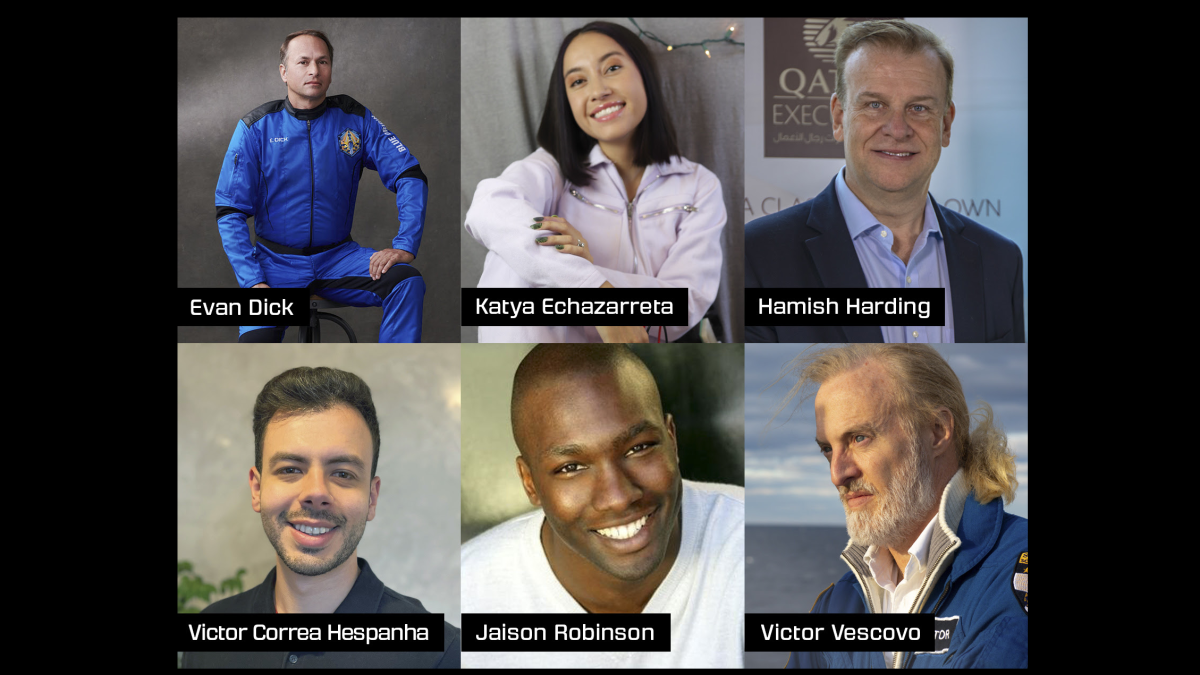
New Shepard's fifth crewed mission will carry six passengers but no pilot, as the space capsule is an automated system. The crew will include:
Evan Dick
Dick is making his second spaceflight aboard New Shepard, having been a participant in the NS-19 mission of Dec. 11, 2021. He is a pilot, engineer, investor and managing member of Dick Holdings, LLC. His charitable and volunteer support includes the Darwin Foundation, Population Relief International Corp. and Starfighters Aerospace, according to Blue Origin.
Katya Echazarreta
Echazarreta, born in Guadalajara, will become the first Mexican-born woman to reach space. Her seat was sponsored by the nonprofit Space for Humanity. She co-hosts the YouTube series "Netflix IRL" and "Electric Kat" on the CBS show "Mission Unstoppable." She spent nearly four years at NASA's Jet Propulsion Laboratory, working on space missions such as the Perseverance Mars rover.
Hamish Harding
Harding chairs the business jet brokerage company Action Aviation. He is a South Pole explorer and holds several aviation records, including a 2019 milestone with retired NASA astronaut Terry Virts that broke a round-the-world mark for aircraft flying over the north and south poles.
Victor Correa Hespanha
Correa Hespanha, 28, is a civil production engineer from the Brazilian state of Minas Gerais, whose seat was sponsored by the Crypto Space Agency. He will become the second Brazilian to fly in space, according to Blue Origin.
Jaison Robinson
Jaison Robinson, a finalist on the TV show "Survivor: Samoa" in 2009, founded the commercial real estate company JJM Investments and co-founded Dream Variations Ventures with his wife, Jamie. Robinson enjoys scuba diving, skydiving and other adventure activities.
Victor Vescovo
Vescovo, a retired U.S. Navy Reserve intelligence officer, is co-founder of the private equity investment firm Insight Equity. He has completed an "Explorer's Grand Slam," summiting the highest mountains on all seven continents and also skiing to the North and South poles. He is a commercially rated multi-engine jet and helicopter pilot, as well as a certified submersible test pilot, according to Blue Origin.
What will happen on the flight?
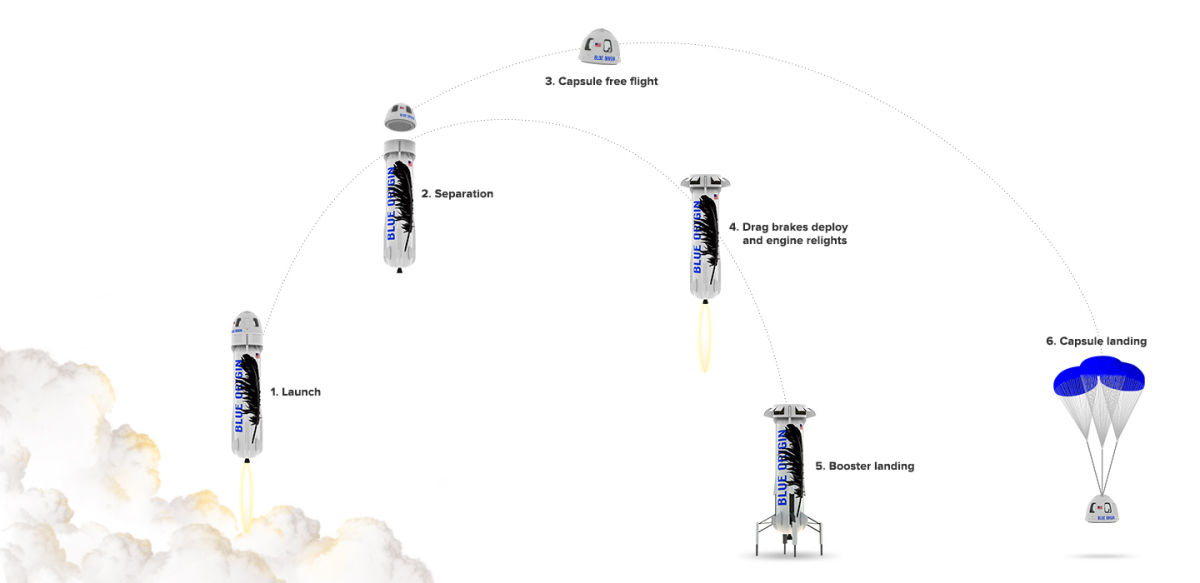
This newest mission marks New Shepard's 21st flight, so it has the designation NS-21. (Most of the capsule's missions have been payload research flights or uncrewed tests.)
This will be the fifth crewed mission. Blue Origin's debut crewed flight occurred on July 20, 2021 and sent four people into space, including founder Jeff Bezos.
The company's next three missions flew on Oct. 13, 2021 (featuring "Star Trek" captain William Shatner); Dec. 11, 2021 (starring "Good Morning America" host and former NFL star Michael Strahan) and March 31, 2022 (with no celebrity passenger, though "Saturday Night Live" actor Pete Davidson was on the original passenger list).
New Shepard is named after NASA astronaut Alan Shepard, who became the first American to reach space on May 5, 1961. (His daughter, Laura Shepard Churchley, flew on the Oct. 13 New Shepard flight.)
Passengers aboard New Shepard reach suborbital space and experience "weightless" conditions for about three minutes. While Blue Origin does not yet advertise its per-seat pricing to the public, competitor Virgin Galactic is currently selling seats for $450,000 each.
Infographic: How Blue Origin's New Shepard rocket works
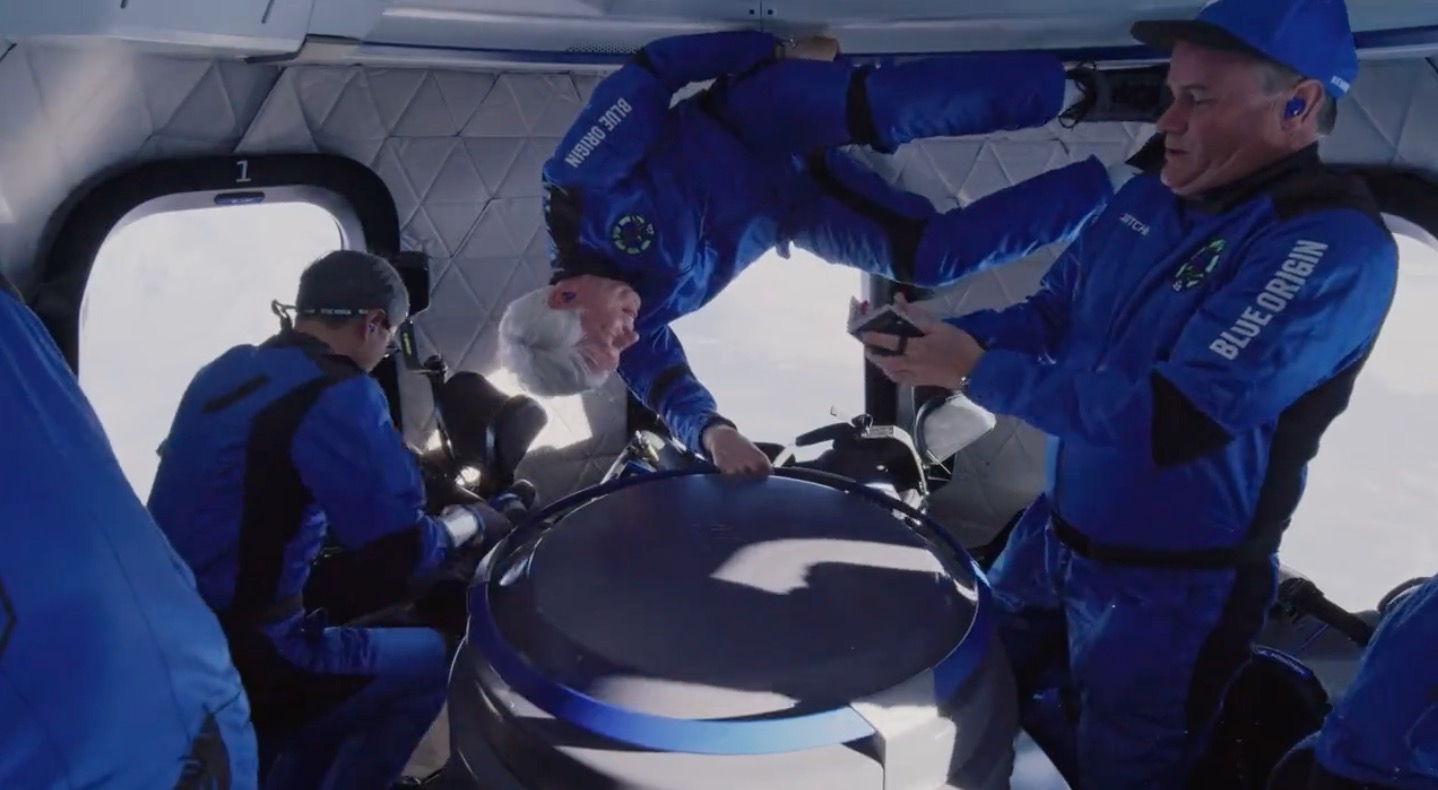
No pilots fly on New Shepard, as the system is fully autonomous. During landing, the rocket uses a ring and wedge fins for aerodynamic stabilization and to achieve a soft landing. The capsule uses a parachute, and each mission lasts roughly 11 minutes.
Blue Origin advertises New Shepard flights as unforgettable experiences, mentioning attributes such as "big, beautiful windows," its maximum altitude and "building the road to space" among its marketing tools. Blue Origin also plans to bring more research payloads into space in the coming years.
What will Blue Origin passengers experience?
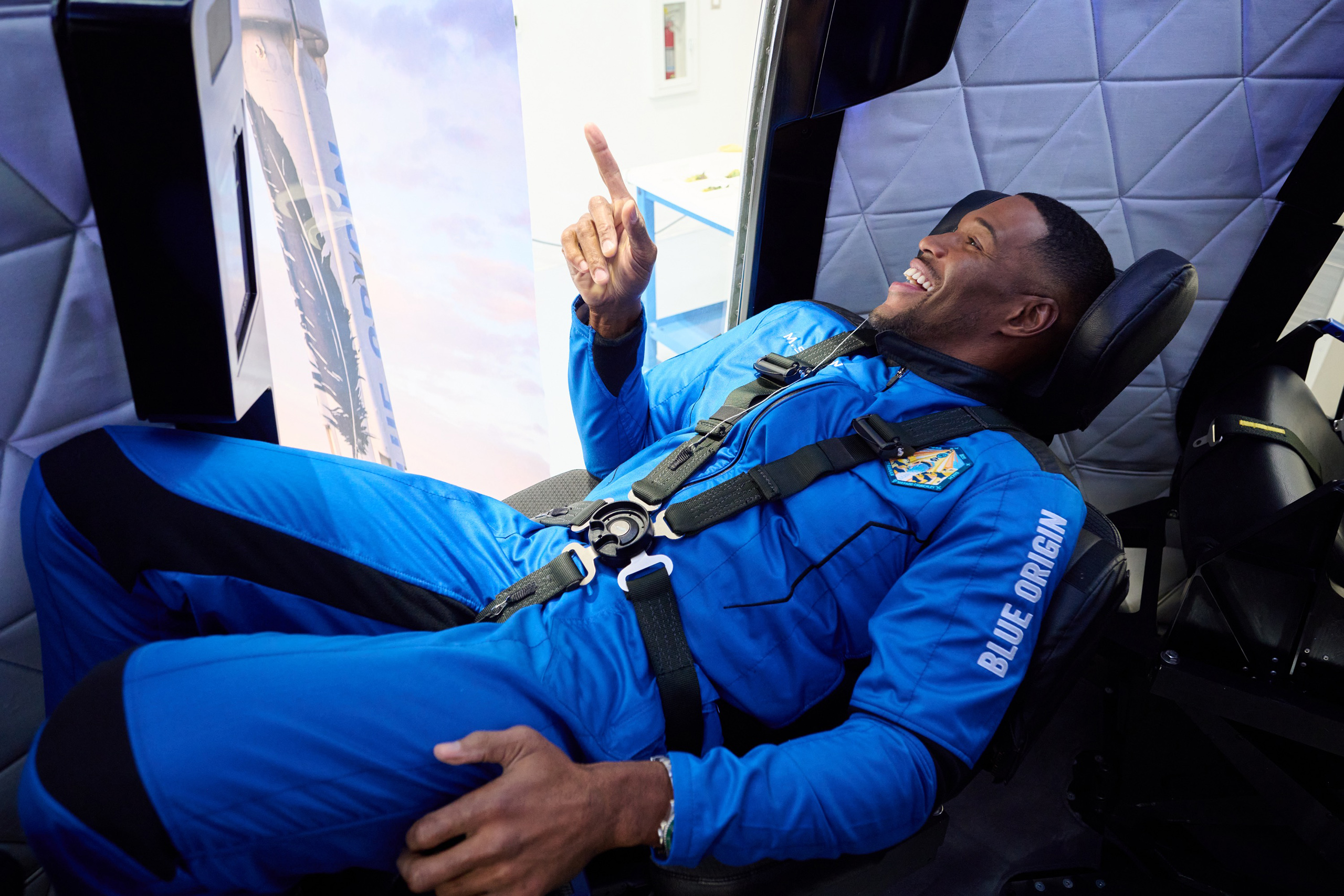
Blue Origin passengers typically receive roughly 14 hours of preflight training over a few days, including basic flight and emergency procedures. By contrast, NASA astronauts spend at least 4.5 years getting ready for a six-month spaceflight: that's 2.5 years of basic training plus two years of mission training, often on top of previous jobs with related experience in science, piloting, remote living or emergency procedures.
During launch, Blue Origin passengers wear jumpsuits supplied by the company, rather than spacesuits. Blue Origin has said this apparel choice makes it easier to move around during weightlessness, and to look out the window.
A Blue Origin seat auction in 2021 featured a terms and conditions document for potential passengers with requirements such as ascending seven flights of launch tower stairs in less than 90 seconds.
Such requirements don't seem overly taxing; the company has already flown elderly people, among them "Star Trek" star William Shatner (age 90 at the time of his flight) and "Mercury 13" aviator Wally Funk (then 82.)
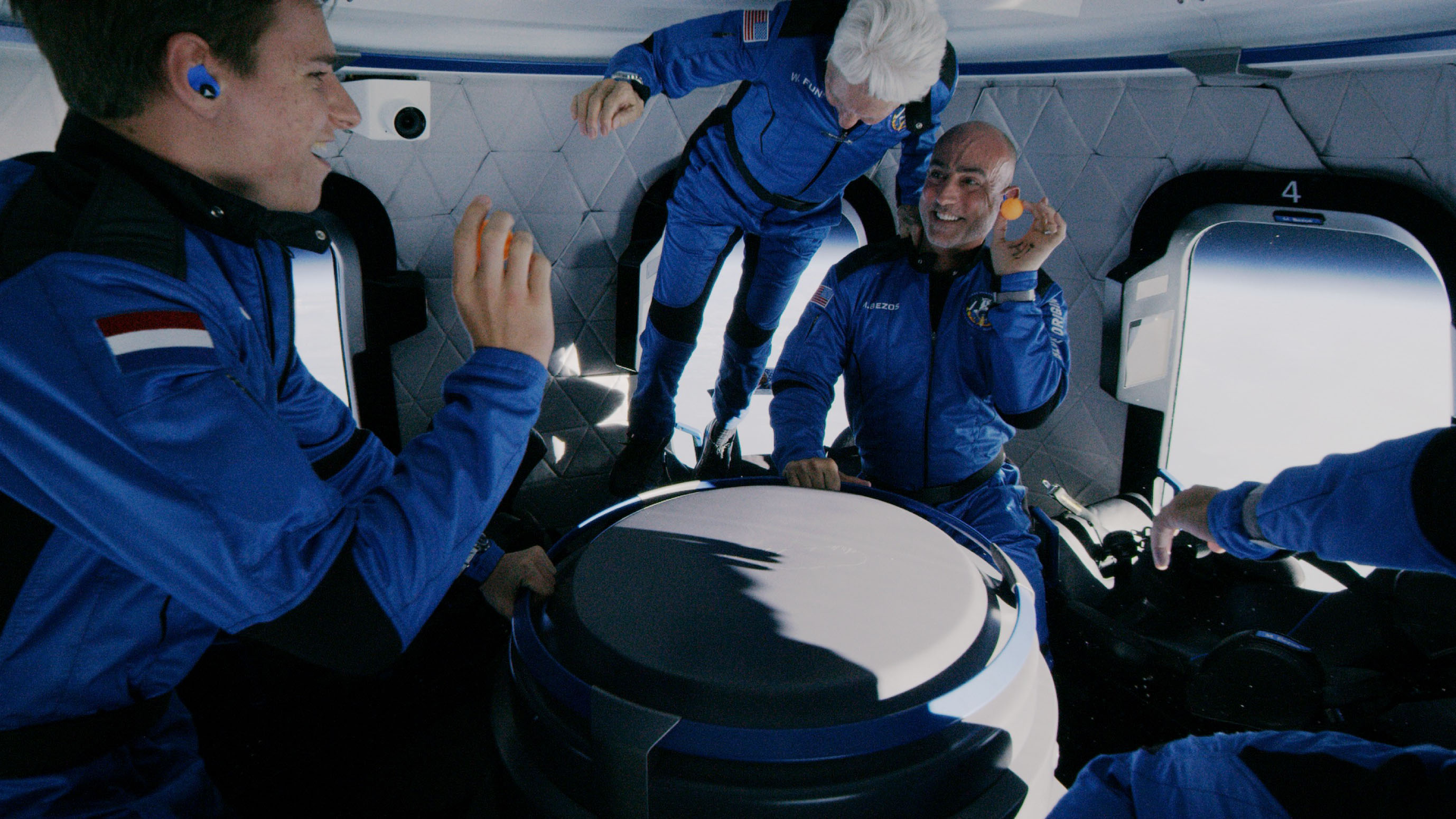
While suborbital spaceflights are much briefer than NASA's space station excursions, any spaceflight involves numerous potential risks, including fire, cabin depressurization and handling G-loads (forces of gravity). New Shepard crewmembers are trained to unstrap themselves in 15 seconds in case of emergency.
In late September 2021, 21 past and current Blue Origin employees (nearly all of them anonymous) wrote an essay alleging that Blue Origin was rushing to launch immediately to accrue revenues, possibly compromising spaceflight safety along the way. Two weeks later, Blue Origin's vice president of mission and flight operations, Audrey Powers, flew to space successfully on New Shepard.
Blue Origin also points to its track record in discussions of safety. New Shepard has successfully been recovered, along with its booster, on every flight except the first one, NS-1.
Blue Origin uses its RSS First Step (RSS is short for "Reusable Space Ship") for crewed flights. A different New Shepard capsule, called RSS H.G. Wells, is used for uncrewed science flights.
Where does Blue Origin launch New Shepard from?
Blue Origin launches from a facility called Launch Site One, which is in a remote desert area of West Texas, 25 miles (40 kilometers) from the town of Van Horn.
The company keeps the facilities closed to the public, aside from paying customers who receive a short tour of the support facilities and spacecraft, according to a short tour video that Blue Origin previously released.
When could I launch to space with Blue Origin?
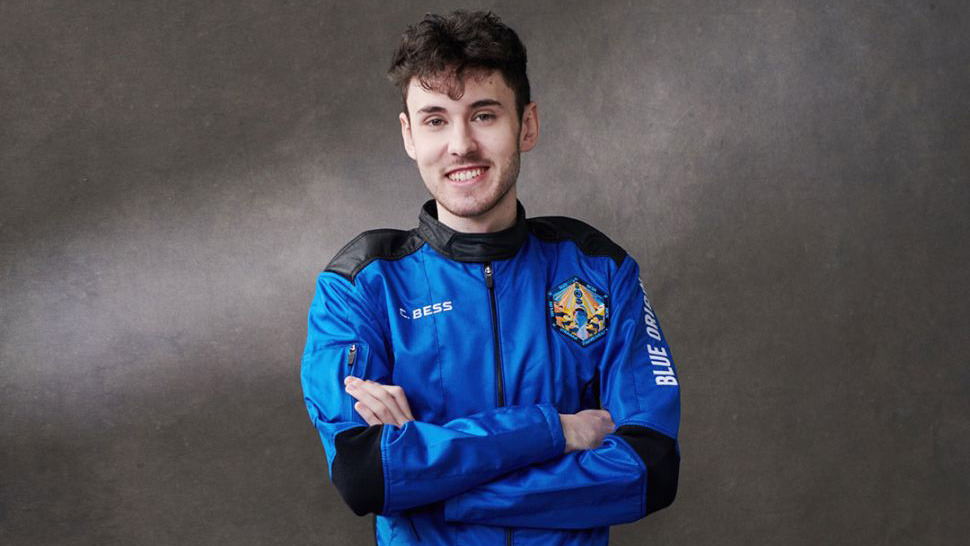
You can book a flight via the Blue Origin website, but the company has not yet publicly disclosed its pricing or its long-term flight schedule. Blue Origin probably has a passenger backlog given that crewed flights began less than a year ago, but the company has not released much detail along these lines.
There are other options available, if you have the means. Virgin Galactic flights retail for $450,000 per seat. Two other companies, World View and Space Perspective, are developing balloon-based systems for stratospheric journeys, for $50,000 and $125,0000 per seat, respectively. Both of those companies aim to begin commercial operations in the mid-2020s.
Editor's note: This story was updated at 5:50 p.m. EDT on May 31 with the new planned launch date of June 4. Blue Origin had been targeting May 20 for the NS-21 launch but pushed it back to investigate a possible issue with the New Shepard vehicle.
Follow Elizabeth Howell on Twitter @howellspace. Follow us on Twitter @Spacedotcom or on Facebook.
Join our Space Forums to keep talking space on the latest missions, night sky and more! And if you have a news tip, correction or comment, let us know at: community@space.com.
Get the Space.com Newsletter
Breaking space news, the latest updates on rocket launches, skywatching events and more!

Elizabeth Howell (she/her), Ph.D., was a staff writer in the spaceflight channel between 2022 and 2024 specializing in Canadian space news. She was contributing writer for Space.com for 10 years from 2012 to 2024. Elizabeth's reporting includes multiple exclusives with the White House, leading world coverage about a lost-and-found space tomato on the International Space Station, witnessing five human spaceflight launches on two continents, flying parabolic, working inside a spacesuit, and participating in a simulated Mars mission. Her latest book, "Why Am I Taller?" (ECW Press, 2022) is co-written with astronaut Dave Williams.
